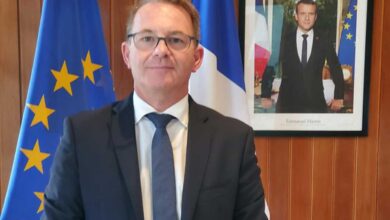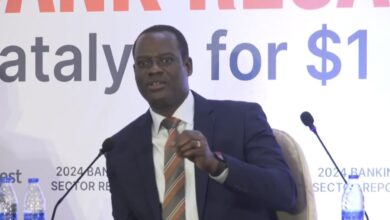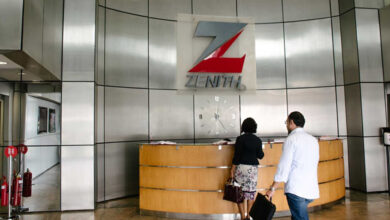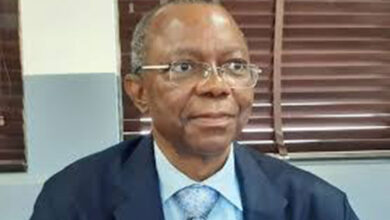FG receives largest LNG-powered vessel at Lekki port

The federal government said the deployment of the largest liquefied natural gas (LNG)-powered container vessels to Nigerian deep seaport is in tandem with the country’s commitment to the 2023 International Maritime Organisation’s (IMO) GreenHouse Gas (GHG) Strategy that envisages a reduction in the carbon intensity of international shipping by at least 40 per cent by the year 2030.
The Minister of Marine and Blue Economy, Adegboyega Oyetola, disclosed this, yesterday, during the arrival ceremony of the largest LNG-powered container vessel, ‘CMA CGM Scandola’, at Lekki Port, Lagos.
Oyetola, who was represented by the Managing Director of the Nigerian Ports Authority (NPA), Mohammed Bello-Koko, said government aligns with the global discourse, which said the reduction in the use of hydrocarbon and the increasing use of LNG in maritime transport could help to reduce carbon dioxide emissions and other pollution arising from international trade.
He said the imperative of making the country’s seaports eco-friendly is no fluke, noting that the federal and state governments will continue to support the NPA in its efforts at ensuring stakeholders’ compliance with the International Maritime Organisation (IMO) Sulphur Regulation on Nigerian waterways.
The minister said the driver of the change is the need to minimise the air pollution created by the shipping industry by reducing the sulfur content fuels.
Oyetola said the government has taken concrete steps towards the procurement of necessary tools to enhance NPA’s capacity for sulphur analysis as well as put in place a sanction regime for vessels that contravene sulfur regulations.
Managing Director of CMA-CGM Nigeria Shipping Limited, Hinelder Ferreira, said the containership, which is a 366 metre length overall (LOA) with a capacity of 15,000 twenty-foot equivalent units (TEUs) ranks amongst the largest LNG-powered vessels to call in West Africa.
He said by deploying the biomethane- and e-methane-ready container ships, the CMA CGM group has demonstrated, once again, its commitment to support West Africa’s supply chain by increasing deployed capacity as well as the group’s role as a pioneer in decarbonising shipping and logistics.
Ferreira said the vessel currently runs on LNG, improving air quality by avoiding up to 99 per cent of sulphur emission, 92 per cent of nitrogen oxide emission and 91 per cent of particulate matter, noting that once supply is available, the ships will be capable of using BioLNG (liquefied biomethane produced from biowaste) and e-methane (synthetic-methane produced from decarbonized hydrogen), a source of carbon-neutral fuel.
He said the group invested close to $15 billion in decarbonising its fleet and is currently operating 35 dual-fuel LNG-powered containerships. This, he said, will have almost 120 vessels capable of being powered by decarbonised fuels by 2028.
Following the call in Nigeria, he said, the CMA CGM SCANDOLA would continue its voyage and sail to Abidjan, Côte d’Ivoire.
The Lagos State governor, Babajide Sanwo-Olu, affirmed that the accomplishment of Lekki Port in welcoming the largest LNG-powered container vessel within just one year has enshrined the names of Lagos and Nigeria as significant players in global port transactions.
While declaring it a milestone that has positioned Lagos as a major mover in the world’s logistics marine business, Sanwo-Olu, emphasised the transformative role of Lekki Port, a privilege traditionally reserved for developed countries.







